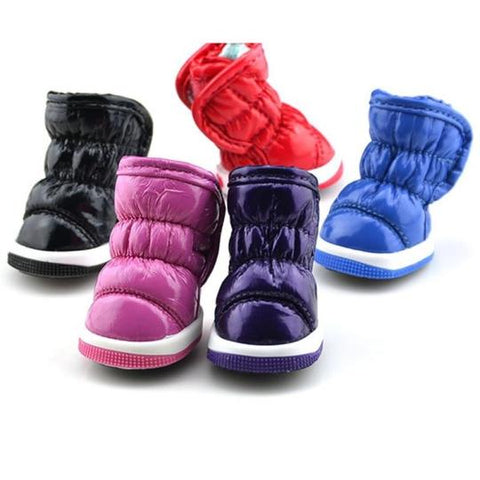Just like us, our canine companions get older and their bodies change with time. Dog aches and mobility problems can be related to a variety of factors like arthritis or difficulty getting up from lying down because of muscle loss. Therefore, it’s essential to help your senior French bulldog easier paw through old age.
Identifying problems in your senior French bulldog
Losing the ability to normally walk can be a very scary thing for dogs. They dig, scratch, walk and explore the world thanks to their legs. If you’ve noticed that your Frenchie started to difficulty stand up, climb the stairs, or jump, then you have to schedule a vet visit as soon as possible.
These are some of the most common mobility issues that can occur in senior French bulldogs:
Unfortunately, Frenchies are on a higher tendency to suffer from this condition. It’s very painful and we can describe it as a condition where the head of the femur does not fit the socket properly. This crippling disease causes a Frenchie’s hip to weaken and as the dog ages, the cartilage and bone of the hip will begin to wear down. Over time, it can lead to arthritis, limited mobility, and muscle atrophy.
-
Intervertebral Disc disease in French bulldogs
IVDD is an age-related, degenerative process that affects the dog’s spinal cord. Intervertebral Disc disease in French bulldogs occurs when the shock-absorbing discs between your dog’s vertebrae gradually harden until they are no longer able to cushion each other normally. This disease can occur suddenly or to become develop slowly over time.
In most cases, the discs harden and begin to compress the spinal cord and ruin the nerve impulses which may lead to problems with bowel control. The conservative treatment can be performed in mild cases of IVDD while losing the walking ability requires urgent surgery. Mild cases of IVDD in French bulldogs can be treated with medicines, crate-rest, and dietary care. On the other hand, surgery includes the removal of the diseased intervertebral disk material to relieve the pressure on the dog’s spinal cord.
-
Osteoarthritis in French bulldogs
Degenerative joint disease (DJD), or arthritis, is a progressively debilitating condition that affects the cartilage in your dog’s joints. When this protein-rich tissue becomes worn and raw surfaces rub against each other it causes pain as well as reduced mobility of those joints. The dog’s joints are an incredibly complex system that lets dogs get from point A to B without any problem. Osteoarthritis is likely to come around with age, but it can also be caused by joint injury or a condition such as hip dysplasia. In younger Frenchies, this may arise from over-stressing their joints like when completing exercises that are too strenuous for them if they were not physically prepared for it.
-
Infectious arthritis
The bacteria that causes Rocky Mountain spotted fever is usually spread through contact with blood. It can also enter your dog’s body through an open wound, which could lead to serious complications if left untreated for too long!
The best tips to improve your French bulldog’s mobility at home
-
Try natural remedies
Including natural supplements into your dog’s diet such as chondroitin and glucosamine can improve the dog’s cartilage and mobility. Since they are non-steroidal, they can be used in the long run. However, precautions are needed since liver and kidney problems can occur if not administered properly.

-
Maintain your French bulldog’s healthy weight
Since dogs with mobility issues will be on a higher tendency to gain weight, you have to put your Frenchie on a different diet to prevent him from obesity. Otherwise, your furry gremlin will not only experience issues with mobility but also with breathing. French bulldog’s weight should not exceed more than 28 pounds.
-
Pay attention to your floors
You might notice that your dog struggles to grip the floor when walking on slippery surfaces, like tile or laminate. This can lead them into slipping and falling which is painful for both you and their joints! To help reduce this discomfort make sure you cover them with rugs, so they have something comfy underfoot. Besides, make sure you dry out wet floors because humid conditions increase friction significantly.

-
Place a dog ramp
A dog ramp can be especially handy if your pooch needs to climb the stairs. To improve the traction, you can also put dog boots or socks with anti-slip addition on their paws.
-
Keep your French bulldog’s nails trimmed
Long nails on your Frenchie can cause your dog to slip or even experience painful ingrown nails. This can be very dangerous during the winter months, long nails can cause additional difficulty getting traction.
Enlist The Help of Mobility Aids
-
Strollers
Dog strollers allow you to take your Frenchie on walks without causing pressure and forcing him/her to walk.
-
Toe grips
This mobility aid is used to improve traction in senior dogs. They can be especially beneficial when walking on icy terrains in the winter.
-
Dog Winter boots
Search for dog winter boots that are made of waterproof fabric and that feature an anti-slip sole. We recommend you check our Waterproof French Bulldog Boots that are padded with warm filling and feature the anti-slip sole that prevents slipping. They’re available in many colors and 5 sizes.
-
Choose a comfy French bulldog bed
Senior French bulldogs should sleep on dog beds made of memory foam. Since it shapes according to the dog’s body, your pooch won’t feel additional pressure on his/her joints, hips, or spine. Have a look at our Frenchie Worldâ„¢ Orthopedic Dog Bed because it gives support and comfort. It’s designed to aid in the relief of aches and sores associated with age.
-
Orthopedic French bulldog harnesses
This type of French bulldog harness comes with an extra handle on the dog’s back. It’s great for pooches with neurological diseases and can be quite handy when your dog needs to climb the stairs or jump into the car. Senior French Bulldog Harness has two handles and double belts to improve the hip and joint support. It’s padded and made of nylon webbing that never loses strength.



